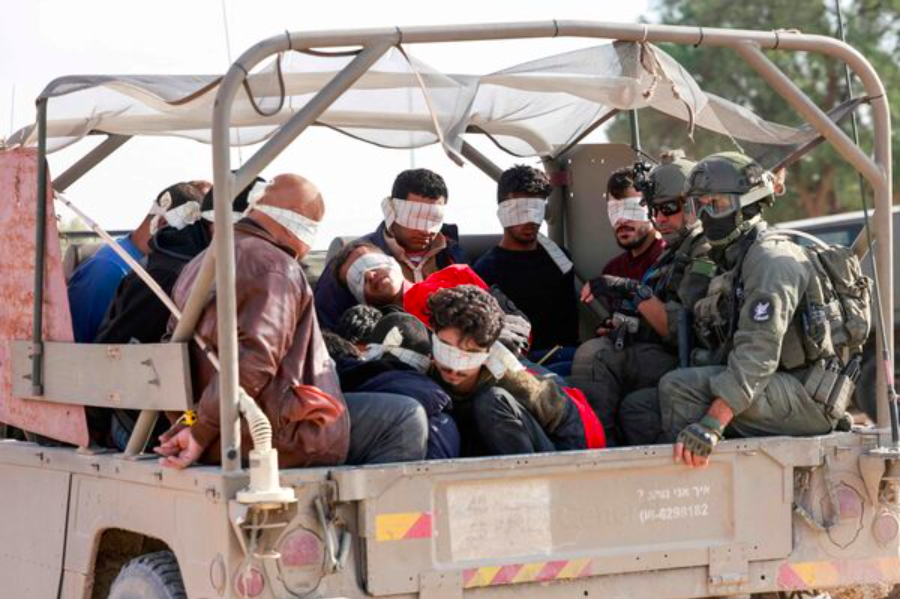
Published 11/21/2023 18:52 | Edited 11/22/2023 10:22
The scenario in the Gaza Strip may be about to change with the imminence of a truce agreement brokered by Qatar. Both the leader of the armed group Hamas, Ismail Haniyeh, and Israeli Prime Minister Benjamin Netanyahu indicated optimism about the outcome of the negotiations, which could result in the exchange of captives for Palestinian prisoners.
US President Joe Biden stated on Tuesday that negotiations are at an advanced stage: “We have been working for weeks to remove the hostages. Now we are very close.” However, he stressed that any action will be taken only when all details are agreed.
Hamas leader Haniyeh declared that the group’s response to Qatari mediators had been delivered, indicating progress in negotiations. Although he did not provide specific details, Palestinian official Ezzat el-Reshiq said discussions covered the duration of the ceasefire, agreements to deliver humanitarian aid to Gaza and the exchange of prisoners.
The possible agreement will involve the release of women and children by both sides, with final details announced by Qatar. El-Reshiq mentioned that the ceasefire will also cover provisions for providing aid to all areas of Gaza and transferring injured people for treatment in other countries.
However, Netanyahu, after meetings with his security cabinet, indicated that Israel will continue the war even if a temporary ceasefire is reached for the release of captives. “I want to clarify: we are at war, we will continue at war, until we achieve all our objectives. We will destroy Hamas, we will return all our kidnapped and missing people and we will ensure that in Gaza there will be no party that poses a threat to Israel,” he said.
Unnamed U.S. officials have suggested that the proposed deal will involve the release of 50 Israeli prisoners in exchange for 150 Palestinian prisoners, accompanied by a pause in fighting for four or five days.
Public reaction in Israel is still uncertain, with far-right figures such as ministers Itamar Ben-Gvir and Bezalel Smotrich opposing the deal. Ben-Gvir and Smotrich believe that what the Israeli military has done in Gaza has been effective, which is how this agreement was reached – but they oppose any kind of release of Palestinian prisoners. Acceptance of the pact will depend on the internal deliberations of the Israeli government.
However, growing international pressure, reflected in the recent UN Security Council resolution, may influence decision-making. The international community, through the United Nations Security Council, called for “urgent and expanded humanitarian pauses and corridors”, seeking to alleviate the humanitarian crisis in the region.
The outcome of the current negotiations could have significant implications for stability in the region. As the situation evolves, the international community is watching closely, hoping that a possible truce agreement will bring relief to the humanitarian crisis in Gaza and end weeks of devastating conflict.
Source: vermelho.org.br

